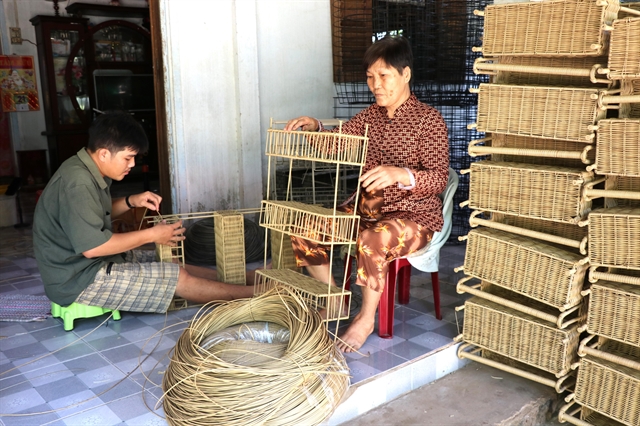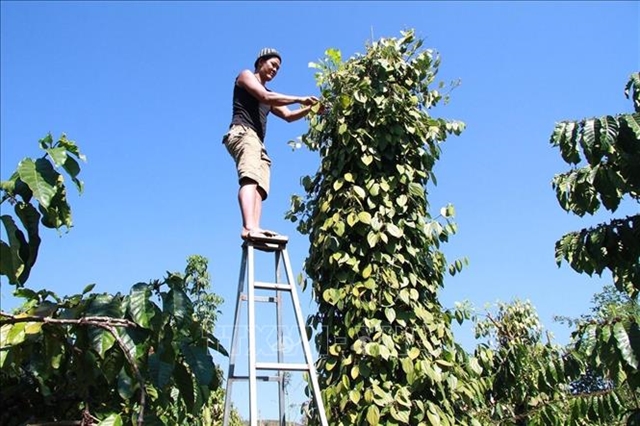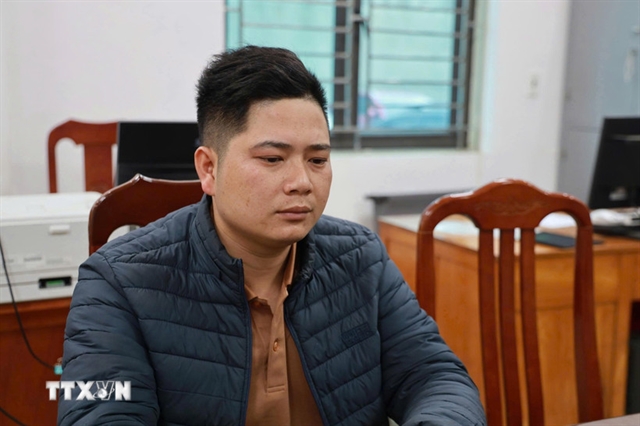 Society
Society
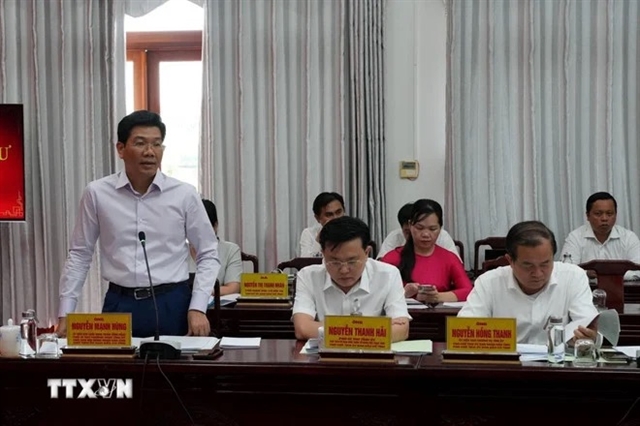
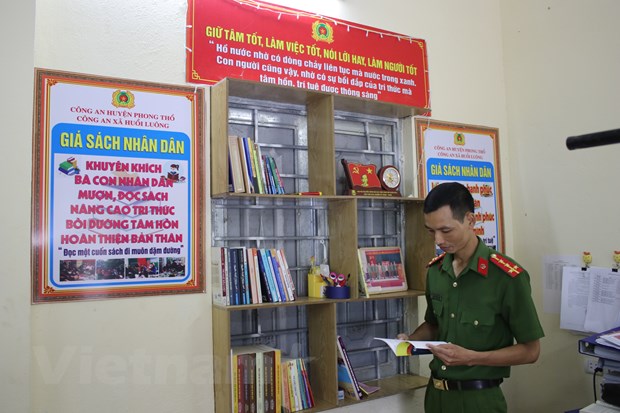
|
| A bookshelf for residents at Huổi Luông Commune's Police Station. VNA/VNS Photo Hùng Võ |
LAI CHÂU — Hundreds of regular police have been sent to work in border communes where they keep social order and security while doing their bit to support the community for a better life.
Colonel Đoàn Tá Chính, who has worked in Huổi Luông Commune, Phong Thổ District of the northern province of Lai Châu since July 2021, said that before arriving in the commune, he was a lecturer at the People's Police Academy School.
That all changed in July 2021, when Chinh and nearly 400 colleagues at the Ministry of Public Security were transferred to key border communes with complex security and order issues in Lai Châu Province.
"When being deployed to remote, disadvantaged areas, especially border communes, we were all determined to complete all tasks assigned by the Party, State and the police sector," Chinh emphasised.
Huổi Luông commune shares a borderline with China. The commune is home to four main ethnic groups; Hà Nhì, Dao, Mông and Kinh.
"When we started working in the commune, our first difficulty was the language barrier, as we did not know the languages of the ethnic groups," Chinh said.
Chinh always tried to learn the language so that he could better communicate with them and then tell them more about the guidelines and policies of the Party and the Government, Chinh said.
Commune police had to work very hard during the campaign to make chip-based identity cards and create an account for people to use online public administrative services.
"Many people did not master Vietnamese, and they filled in application forms with different names or dates of birth," Chinh said, adding that some people even changed their names when they felt sad.
"We police have to correct the information that citizens provided to prevent possible troubles in future," Chinh said, adding that they also convinced citizens to apply to get new personal ID cards.
Commune police also talked to people about how to use smartphones to do administrative tasks and avoid crimes like smuggling and human trafficking.
Police called on donations to help needy students continue their schooling. Police set up bookshelves so that local people quickly access books and enrich their knowledge in production and life.
Secretary of the Lai Châu Provincial Party Committee Giàng Páo Mỷ said that the police force made a significant contribution to improving housing for local people through a housing support project in Mường Tè District.
For years, many households in the district had to live in temporary houses made of thatch, bamboo, or bamboo leaves which are very vulnerable to collapse, especially in the rainy and stormy seasons.
They need a house that meets the three-hard standard; a hard foundation, wall and roof. Such houses also need electrical and rainwater collection systems suitable to the harsh conditions in Mường Tè.
Due to the difficult terrain, the materials were mainly transported by hand during the project's implementation. To reach some villages, people had to walk more than 20km.
However, thanks to the hard work of soldiers, civil servants, officials and youth unions, more than 1,000 houses were built, helping people stay safer during the rainy season.
Mỷ emphasised that the project was an important political task with great humanistic meaning.
The provincial leaders promptly directed and assigned the provincial police to develop the project.
The police, army and border guard forces reviewed beneficiaries and together implemented the project quickly, Mỷ said.
"With the timely participation of all Party committees, authorities from the province to the grassroots, the consent and support of the people, the housing support project was completed on schedule, thereby assuring people," said Mỷ.
Sùng A Lâu from Cao Chải village, Tà Tổng Commune, said that thanks to the housing support project, his family live in a much more comfortable house and can focus on earning their living without worrying about the place to stay. — VNS



